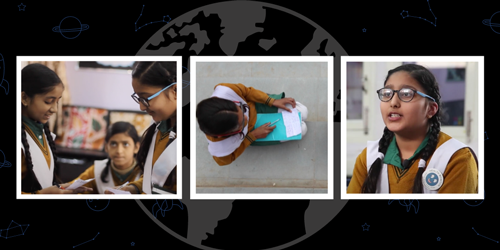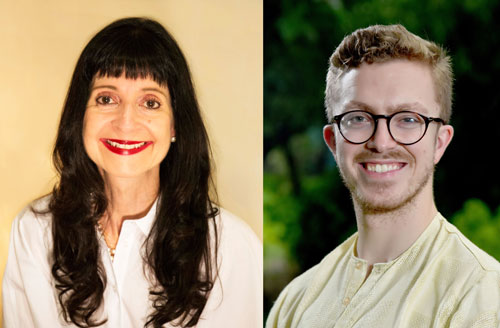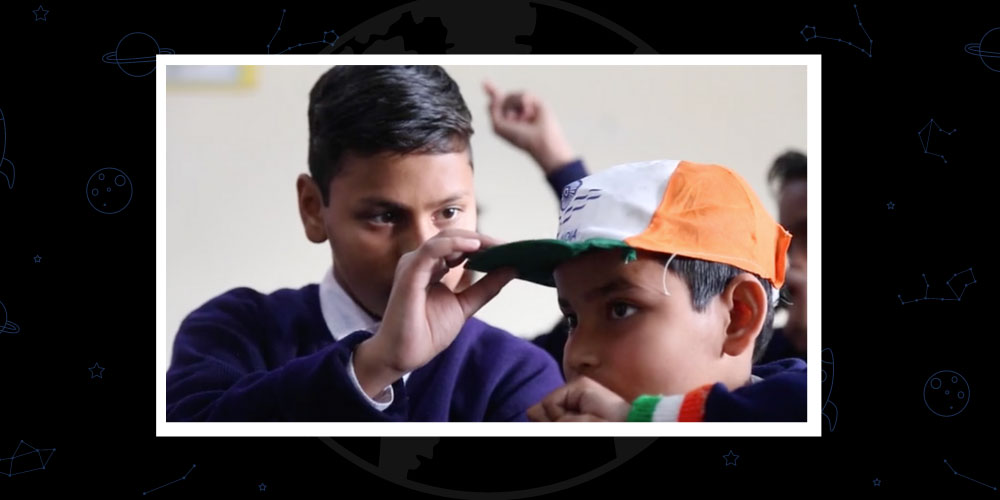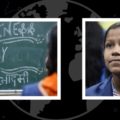This month audiences can screen Home Remedy, another story in The Happiness Diaries series directed by Christopher Carpenter. In this episode, Jasleen, a young girl in the government school system in New Delhi, embodies and utilizes a lesson learned in the Government of Delhi’s Happiness Curriculum to change her life at home.
India ranked 122 out of 155 countries in the World Happiness Report 2017. One of the most positive developments from this was the Happiness Curriculum launched in Delhi government schools in July 2018. The goal of the Curriculum is to instill within young people, their parents and families, and their teachers a set of life skills that can help them overcome adversity and thrive. The main components of the curriculum are mindfulness, activities, stories, and opportunities for self-expression. Director Christopher Carpenter created a series of documentaries – entitled The Happiness Diaries, to capture the essence of the curriculum’s lessons.
The Global Search for Education is pleased to welcome back Christopher Carpenter.
Chris welcome back! Home Remedy is part of The Happiness Diaries, which we’ve been showcasing on Planet Classroom. Could you talk about the decision to tell this particular story. Where does it “fit” in the curriculum?
The Happiness Diaries consist of a set of films that intentionally explore the different relationships within a young person’s life. Other films in the series focus on relationships with teachers, relationships with other students, and relationships with the young people themselves. But because education does not end at the schoolhouse door, it was important we explored a relationship in the home, specifically with parents. The Happiness Curriculum is a multi-stakeholder agreement – as one teacher said to us during her interview, the purpose is, in part, simply to show a young person that they have a system of support around them all acting in tandem, from the teachers at school to the parents at home. However, we weren’t expecting the lessons to have manifested in such a meaningful way as it did with Jasleen and her parents. Not only had the lessons from the Curriculum been discussed in the home, they had fundamentally reshaped how the relationships within this family were maintained. It was the Curriculum operating at its fullest capacity – Jasleen was empowered to not only reflexively or passively explore the lessons, but to apply it to her own home life. As she relays in the film, her focus and emotional health improved. It showed the ways in which planting seeds of gratitude and mindfulness and curiosity in the minds of children of today will bear fruit that can be enjoyed across every generation, across every throughline of society.
My favorite quote in the short film was, “Today’s kids are teaching us.” Could you speak on the power of the youth generation?
One of the most impactful themes from the short film is definitely encapsulated in the sentiment from Jasleen’s father when he says, “Today’s kids are teaching us.” I think throughout history young people have been the ultimate sounding boards for societal progress. There is a certain awareness young people have of the world they are set to inherit from those who came before them, and, if there are problems of inequality or injustice or abuse, it’s enlightened young people who act on bringing about change. It benefits existing power structures to stay in power, but that’s not how we as a global community improve. Young people have to be empowered to exert their collective voice on the issues that affect them, because it’s those same issues that affect the future. They’re one and the same.
The pandemic sparked a lot of media stories about the importance of social-emotional skills. Ensuring that students continue to develop critical social-emotional skills in a socially distanced world requires educators to not just rethink existing approaches to social learning but also teach children to navigate the new social skills that are needed for life during the pandemic. What role do you see the arts and technology playing in all of this?
Art and technology have always been interlinked – after all, I would argue art is an emotional response to a technical medium. Technology, in this way, allows artists to create – it’s the easel for the painter, the camera for the photographer, the guitar for the musician. The COVID-19 pandemic forced us as social creatures to reckon with our relationship to technology, and how we create and consume the art that results – we have had to acknowledge just how ingrained technology is in our interpersonal communications and cultural navigation.
Our lives went remote and mobile – even I had the unique challenge of editing a film remotely, sending and receiving creative feedback via instant message. But I think it has paradoxically opened our eyes to the immense value of physical togetherness, something many took for granted or even misused. While a young person might’ve lost a year’s worth of physical interaction in the classroom, they gained a future in which working from home or a four-day work week or hybrid work schedules are becoming mainstream, a far cry from the paradigm of their parents and grandparents. Even though the internet and streaming services have crystallized in their influence on the consumption of art, the fact that the movie theatres and concert venues and art museums that withstood the initial shock of the pandemic are continuing to see immense support means human connection and togetherness can never be replaced. The young people of today are emerging into a world in which technology and art are being used to return to a more human-focused outlook, a more balanced relationship, and I think this will be for the better.
C.M. Rubin and Christopher Carpenter
Don’t Miss Home Remedy, another story in The Happiness Diaries series directed by Christopher Carpenter (Curated by Dream a Dream), on the Planet Classroom Network YouTube Channel.







Recent Comments